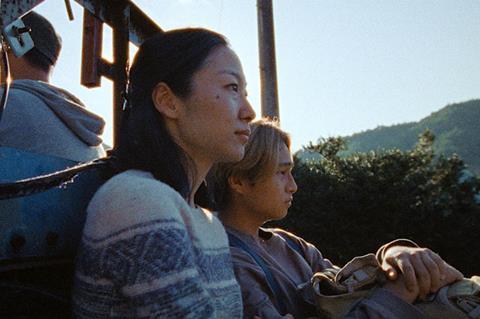A South Korean family attempts to adapt to a new life in Canada in Anthony Shim’s warm drama

Dir/scr: Anthony Shim. Canada. 2022. 117mins
The tender bond between a mother and her son underpins a poignant coming-of-age story in Riceboy Sleeps. The second feature from Anthony Shim is an affectionate, sharply-observed portrait of family life addressing wider issues of cultural identity, belonging and the challenges of the immigrant experience in 1990s Canada. It could almost be a companion piece to Lee Isaac Chung’s Minari. Riceboy Sleeps has less sun glow and sentimentality than that film, but it has a genuine warmth and conviction and should travel extensively at festivals following screenings at Toronto, where it won the Platform Prize, and Busan.
Shim finds the little details that give the story texture and specificity,
Shim seems to distill a whole life into an extensive opening narration. We learn that So-young ( Choi Seung-yoon) was left on the steps of a South Korean temple as a baby in 1960. Raised in orphanages, she left as soon as possible and worked all hours before meeting a young student. The two became inseparable before his mental health problems led him to commit suicide, leaving her with a newborn son. A move to Canada is a way of escaping shame and making a fresh start. This preamble before the main event is a lot to take on board, but it does start the connecting thread of family and belonging that will run right through the film.
Riceboy Sleeps gets into its stride in the Canada of 1990 where So-young and her bespectacled schoolboy son Dong-Hyun (Dohyun Noel Hwang) try to build their new life. Shim brings the casual racism they experience into sharp focus. Dong-hyun is bullied by cruel classmates determined to reinforce his status as a stranger in a foreign land. Even worse is the response of the school authorities, who regard him as the problem. One teacher suggests changing his bothersome name. “ I personally like David best, “ she says, all apparent kindness and concern.
At work, So-young is made to feel invisible. The framing and camerawork always push her to the sidelines as white Canadian workmates isolate and ignore her. So-young’s fierce protectiveness and the pressures to assimilate reinforce the notion that mother and son only really have each other. Home is filled with muted shades of mustard and ochre. It is a little gloomy, a touch claustrophobic but that adds to the sense of a sanctuary from the outside world.
The story moves to 1999 when Dong-Hyun (now played by Ethan Hwang) has become a stroppy teenager, with dyed blond hair, contact lenses and friends. Mother and son appear to have made progress. She has an admirer in the decent, gentlemanly Simon (played by Shim himself). There are questions that never go away as a school project on family leaves Dong-Hyun wanting to know something of his late father. A teacher pointedly brings home the dilemmas facing him when he quotes Maya Angelou saying: “ If you don’t know where you’ve come from, you don’t know where you’re going.”
A further development brings a third act set in South Korea which underlines the importance of family ties and having a sure sense of who you are. The sun-lit fields and open spaces provide a further visual contrast from the confining interiors of their life in Canada.
Throughout, Shim finds the little details that give the story texture and specificity, not least in the importance of food. Dong-Hyun’’s outsider status is marked by the food he brings to school for lunch. Gimbap is exotic and unknown, and reactions to it leave him longing to just blend in and eat what the other kids have. But So-young’s home-made kimchi and carefully prepared meals of bulgogi and jeotgal are signs of love, and even sharing rice can bring a family together in South Korea.
Shim also displays a sensitivity to the characters and the situations in which they find themselves. He never judges and Christopher Lew’s gently roving camerawork and single takes invite the viewer to lean in, observe and take stock of all the emotions at play. The changing aspect ratios (Canadian sequences are shot in 16:9) also reflect the confinement and openness of the different countries. And he is well served by his cast, with an impressive So-young capturing the determination and fortitude of a character who puts everything into giving her son a new and better life.
Production companies: Lonesome Heroes Productions, Kind Stranger Productions, A Lasting Dose Productions
International sales: Sphere Films International info@sphere-media.com
Producers: Anthony Shim, Rebecca Steele, Bryan Demore
Cinematography: Christopher Lew
Production design: Louisa Birkin
Editing: Anthony Shim
Music: Andrew Yong Hoon Lee
Main cast: Choi Seung-yoon, Ethan Hwang, Dohyun Noel Hwang, Anthony Shim






![The Brightest SunScreen[Courtesy HKIFF]](https://d1nslcd7m2225b.cloudfront.net/Pictures/274x183/3/5/0/1448350_thebrightestsunscreencourtesyhkiff_312678.jpg)















![The Brightest SunScreen[Courtesy HKIFF]](https://d1nslcd7m2225b.cloudfront.net/Pictures/100x67/3/5/0/1448350_thebrightestsunscreencourtesyhkiff_312678.jpg)

